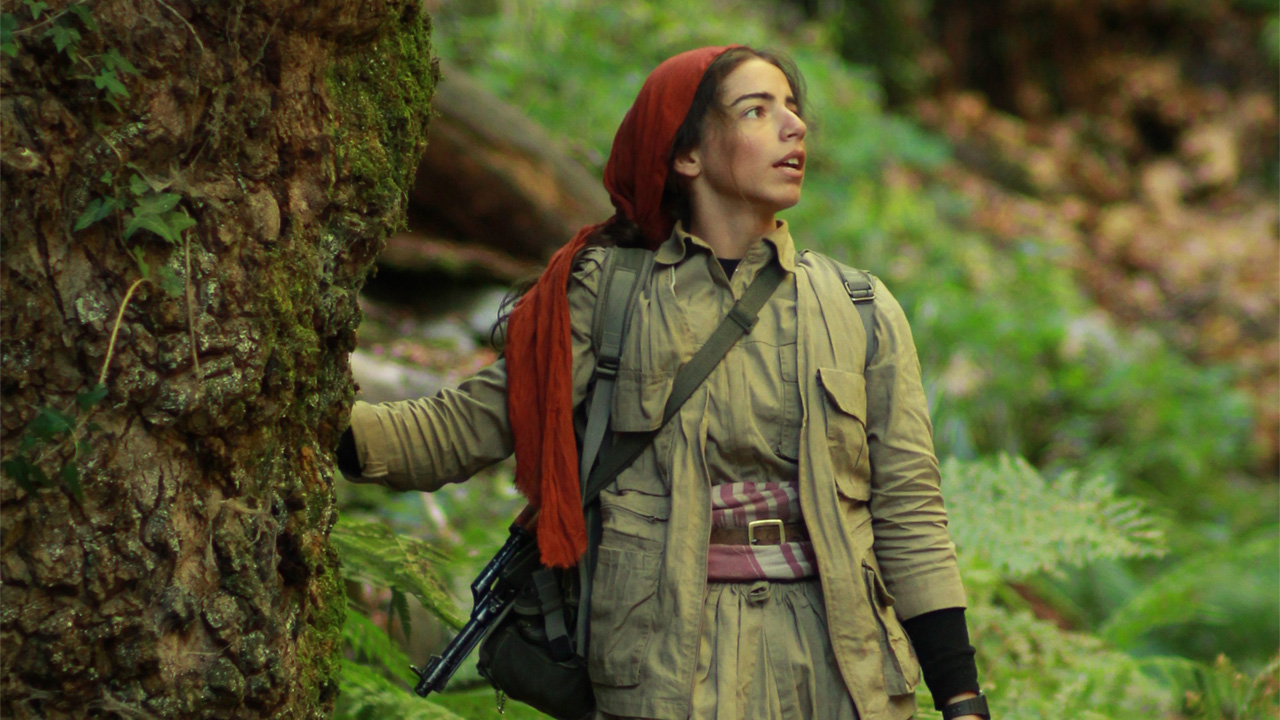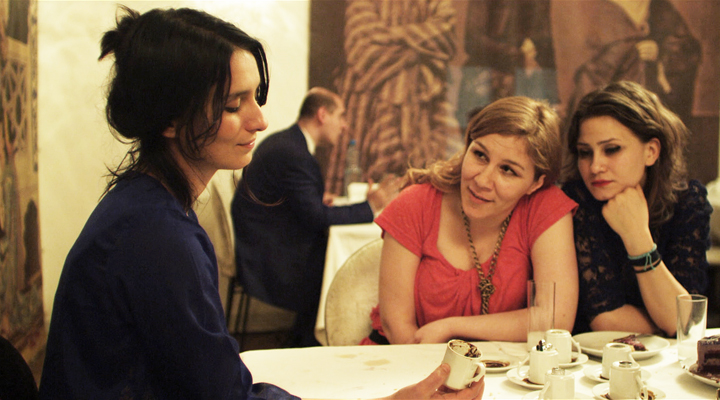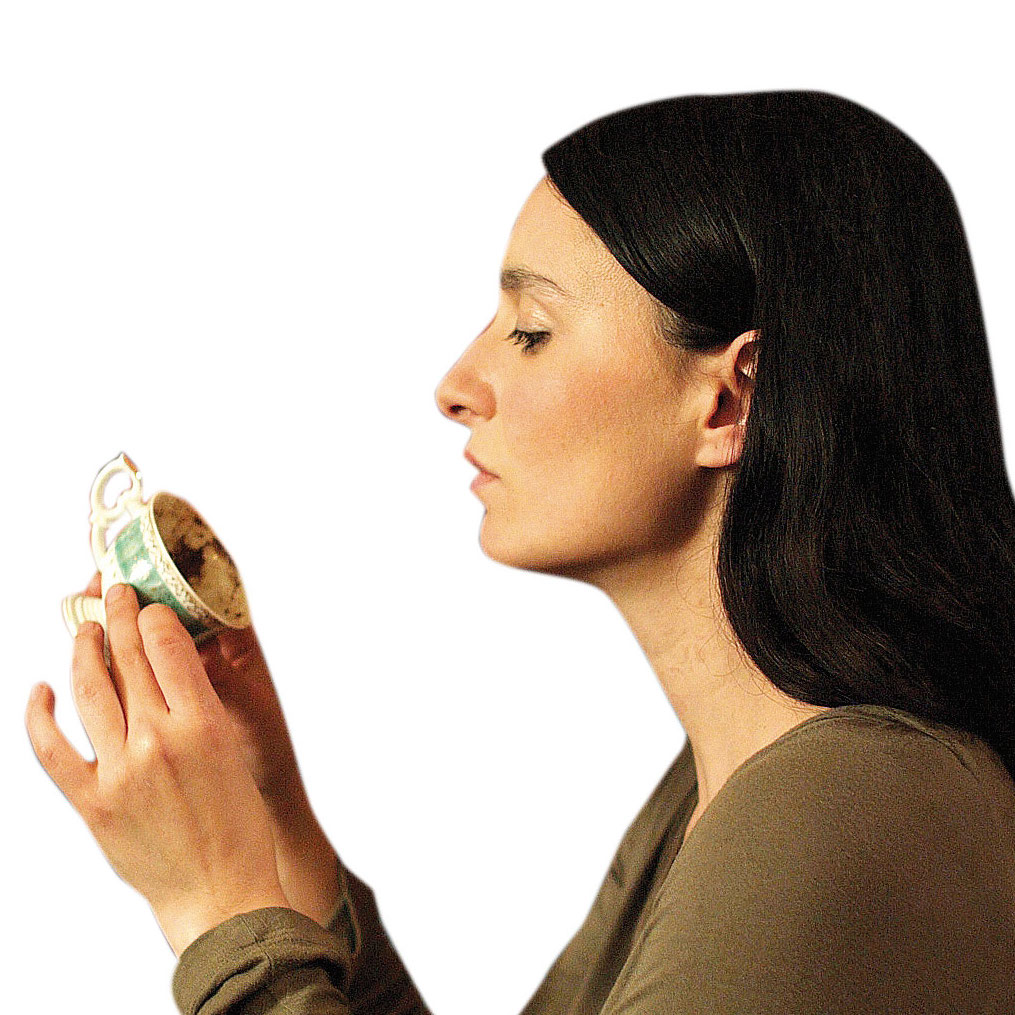Superstition and make-believe in the films of Reha Erdem and Belmin Soylemez
Tradition tells of woman’s unique ability to transfer messages from a world far beyond the physical, material realm. Women have the ability to create and give birth to another human being, and have often been perceived in various cultures as mediums of communication with other worlds. As well, it has also been believed and argued that the female mind is more permeable than that of the male, and that it possesses the ability to receive and transmit messages from incorporeal universes. With such psychic powers, women (such as the Fox sisters and the American Spiritualism movement of the mid-19th Century) have even been able to influence political change, among other things.
Nowadays, women still enjoy this position as an elevated medium, as witnessed in the age-old tradition of divination and fortunetelling, partly achieved by the interpretation of the patterns and shapes of coffee grounds. In Middle Eastern folk cultures, where symbolism and the world beyond are intimately related, the practice of fortunetelling (as well as storytelling in general) is often regarded as a means of establishing a spiritual connection with other worlds. In Present Tense and Jin, two films that were recently featured at the 2013 London Turkish Film Festival, directors Belmin Solyemez and Reha Erdem vividly depict the indelible role of fortunetelling and storytelling, as well as make-believe in the context of modern-day Turkey.
Mina, Soylemez’s heroine in the film Present Tense, and Jin, Erdem’s protagonist in the eponymous film, are two headstrong girls seeking their individual paths in life via symbolic connections with other worlds. While Mina is shown in between the busy streets of Istanbul and their numerous coffee shops, Jin is alternatively depicted in the high altitudes of the magnificent, wild mountain landscapes of Anatolia. Both films present cultural and political reflections with respect to Turkey, particularly where general perceptions of freedom are concerned. Beginning with the portrayal of female life in a conventional Middle Eastern setting, the films expand outside the fight for women’s rights, and instead seek to highlight the quest for a non-existent and impossible freedom, as the two characters pursue personal dreams, which are essentially bound and limited by the irony of their physical existence.

A still from Jin
In Present Tense, Mina finds herself working as a fortuneteller in a traditional coffee shop located in a run-down district in Istanbul, after having lost hope in finding another job. Although Tayfun, her employer, and Feliz, her coworker, acknowledge that she has no previous experience working as a fortuneteller, they nonetheless decide to employ her, given her determination to work. Throughout the film, Mina narrates her life story by connecting the shapes and patterns of the leftover coffee grounds from the cups of customers, expressing her concerns, ambitions, and dreams. In the process, she moulds her own destiny, paving the path of the future with the ornamented twists and turns of the brown lines before her. Accordingly, her personal story becomes intertwined with the stories of her female clients, as she tells of the sorrow and heartbreak common to them all. As a result, her customers increase, and her stories progressively begin to serve as tools for self-expression and reflection. Slowly, fortunetelling becomes a refuge for Mina, as she loses herself in the readings and uses them as an escape route from the pressures of life. As well, unexpectedly becoming tangled within her own mystical readings, she comes to represent the fragility of the unattainable freedom she herself conjured, in linking her past with her illusions.
Present Tense highlights the condition of women in a society wherein they are marginalised, and are often at best considered fortunetellers, further suggesting the vulnerability of women in using blind faith to create and achieve better futures for themselves. Jin, similarly, presents a rebellious, young Kurdish woman who seeks from the Turkish-Kurdish political conflict a freedom that is constantly interconnecting and colliding with the harsh facts of reality. The characters she comes across are aware of the dangerous destiny of her trip, and despite knowing that she has fabricated her history and her new persona as Leyla, acknowledge the need for make-belief as a consolation for life’s predicaments. Likewise, the people around Mina help her along her ‘journey’, given her strong will and headstrong temperament. In a way, both films present a stratum of Turkish society that regard superstition and make-believe as sources of refuge from logically ‘impossible’ stories.
The films both display a confident belief in the need for superstition and the power of storytelling, posing existentialist questions that humanity, despite all its technological advancements, has yet to answer
Throughout her adventures among rough mountains and forests, Jin instinctively handles the difficulties of braving the cold, hunger, and wild animals. However, her more concerning encounter, perhaps, is with the physical abuse and military violence she witnesses. In Jin, the armed political conflict between the Turks and the Kurds is imposed on a backdrop of wild nature, a cinematic gesture which highlights the quarrel between technological modernity and nature, and which re-echoes the strife between the infinite mind and the finite physical body – a concept also explored in Present Tense, via the depiction of the poetic connection between the stories interpreted from transient coffee grounds and the inevitability of bodily death. As well, in Jin, Erdem sheds light on the mystical, symbolic language of nature and its romanticised infinity, wherein the patterns and shapes of the wilderness foretell imaginary answers to existential questions. As well, through this ‘language’, he also underlines the violence and inhumanity of war. Relocating the juxtaposition of humans vis-a-vis nature and animals, Erdem, spreads awareness of the ongoing Turkish-Kurdish struggle in an almost childlike, magical, story-like manner.

A still from Present Tense
Similarly, the process of modernisation as change, and the clash between man and his surroundings is also highlighted in Present Tense through the constant refurbishing and renewal of Istanbul’s streets and buildings, including Mina’s own apartment building, which undergoes a transformation into a hotel. This transformation represents a cultural shift, as well as the overlapping of the traditional with the new, creating a blurred intersection, wherein the marginalised elements of society - such as Mina herself - tend to be more vulnerable to change.
Despite all the social, political, and existential complexities that surround them, Mina and Jin nonetheless continue to fight for their personal freedom and dreams, albeit in different contexts. However, both soon acknowledge the impossibility of their imagined freedom, and the futility of their resistance against the present. While Mina realises that she can’t change society with all its pressures on women, and that it is not practical to leave for the States (where her biological mother resides), Jin soon abandons her plans of escaping, and returns to her mother and her village to play an active role in the Turkish-Kurdish struggle there.
Present Tense and Jin both display a confident belief in the need for superstition and the power of storytelling as means of dealing with life’s challenges, posing existentialist questions that humanity, despite all its technological advancements, has yet to answer. As the coffee grounds are washed away in the sink, so are the stories evoked by them, leaving behind only a longing for impossible dreams laden with individual perceptions of the notion of freedom; nonetheless, the coffee is poured once again, conjuring memories of unachievable dreams and desires ever destined to be effaced.

